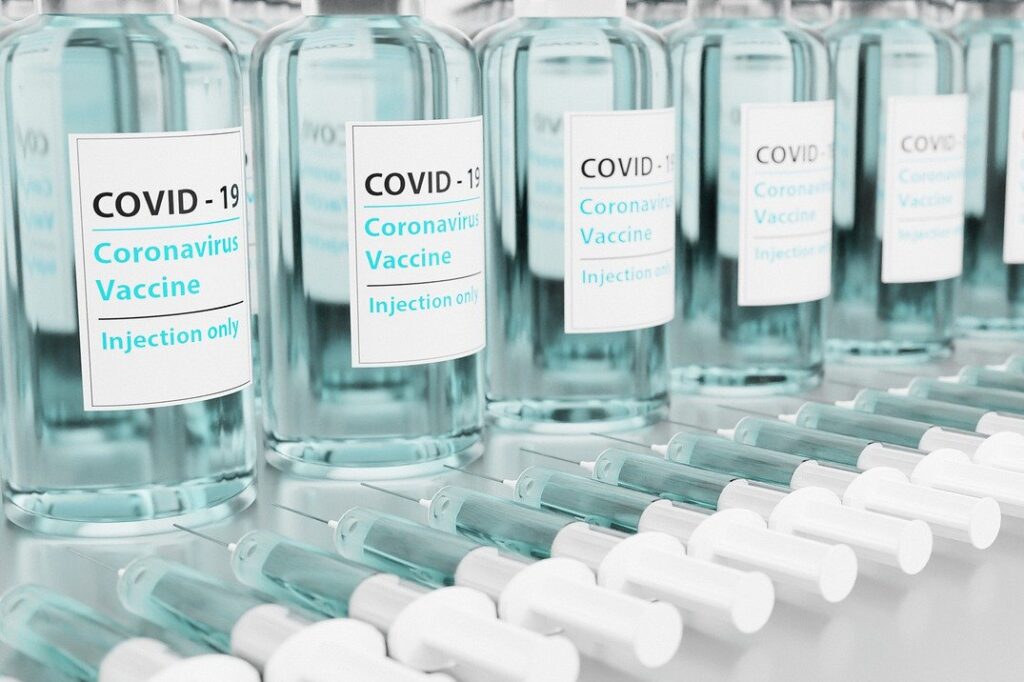Across the nation, states are taking steps during the COVID-19 pandemic to protect pregnant women and their infants during delivery. States, whose Medicaid programs cover nearly half of all births in the United States, recognize the importance of ensuring all pregnant women have safe and healthy deliveries. The Centers for Disease Control and Prevention (CDC) reports that based on available information, pregnant women appear to have the same risk of infection as others.
Background
Nearly all pregnant women in the United States deliver their babies in hospitals, which are currently also treating numerous COVID-19 patients. As a result, states and health care facilities are taking extra precautions to support pregnant woman as they are treated and admitted for delivery to help protect them and their infants from COVID-19 and promote healthy birth outcomes.
Racial disparities already exist in maternal and infant mortality rates, and early COVID-19 reporting shows similar racial and ethnic disparities in mortality rates. The following are some actions states are taking to ensure healthy birth outcomes and support health equity for mothers during childbirth.
Supporting Women during Delivery
To ensure the safety of patients and health care workers during the pandemic, hospitals have begun limiting the number of visitors a patient may have. Because this policy resulted in women being alone during labor and delivery, states and hospital systems have taken steps to ensure women can have support systems in place during delivery.
- New Yorks governor was the first to issue an executive order to ensure no person delivered a baby alone. The order, issued in late March, requires all hospitals to allow one support person in labor and delivery settings.
- In early April, Oregon’s governor issued an executive order that identified a spouse, partner, or other support person accompanying an individual giving birth as an essential individual for hospital visitation.
- Michigan went a step further when Gov. Gretchen Whitmer declared that pregnant women could have their partner and a doula accompany them during delivery if both individuals passed a health evaluation.
Supporting mothers during delivery is a critical step states can take to ensure safe deliveries and healthy outcomes for women and their newborns.
Expanding the Perinatal Workforce
With the spread of COVID-19, states are experiencing an unprecedented strain on their health care systems. To ensure a sufficient health care workforce, the federal government is providing new flexibilities to states, and states in turn are beginning to relax rules and regulations on provider requirements. Currently, at least six states (Maine, New Jersey, New York, Pennsylvania, Tennessee, and Texas) have emergency orders to expand midwifery care to pregnant women. These orders lift some regulations on out-of-state providers, continuing education requirements, and practice oversight.
In Pennsylvania, Gov. Tom Wolf has temporarily suspended a requirement that certified nurse-midwives file a collaborative agreement with the State Board of Medicine and wait until it is processed and approved before engaging in midwifery care. Nurse-midwives may now immediately begin providing care once they have a collaborative agreement with the state board, which bypasses the lengthy processing and approval steps.
In late March, Washington State submitted a 1115 waiver to allow some provider types, including doulas and community health workers, to provide Medicaid-reimbursable services, including preventive services, counseling, and case management during the public health emergency. The waiver seeks to establish a COVID-19 Disaster Relief Fund to stabilize the health care workforce as providers respond to COVID-19. Allowing doulas and community health workers to provide services and bill Medicaid would help ensure access to care and support services for pregnant women and promote health equity.
Monitoring for COVID-19 in Pregnant Women and Newborns
New information about the effects of COVID-19 on pregnant women and infants is emerging daily. Because of the unique needs of pregnant women, studies and data about the COVID-19 in the general population may not always apply to pregnant women. The Pregnancy Coronavirus Outcomes Registry (PRIORITY) Study, led by the University of California, San Francisco, is a nationwide registry designed to enhance understanding of how pregnant women are affected by COVID-19, including what their symptoms are, how long they last, and how COVID-19 may impact pregnancy and delivery.
Recently, Columbia University Irving Medical Center and New York-Presbyterian Allen Hospital in New York City, which has been hit hard by the pandemic, began screening all women admitted to delivery for COVID-19. Of 215 pregnant women screened, 33 women (15 percent) tested positive and most showed no symptoms, according to the New England Journal of Medicine report. As a result of the finding, more hospitals may consider screening pregnant women for COVID-19 when admitted for delivery.
As states begin to publicly report demographic information about COVID-19 cases, such as patient age, sex, and race, they can also choose to track and share information about COVID-19 in pregnant women and newborns, and perhaps identifying mother-to-baby transmission. Publicly reporting this information could help states and providers better understand best practices around treatment to ensure healthy pregnancies and outcomes. By also reporting race or ethnicity among pregnant women and infants with COVID-19, states can track and monitor disparities among these populations.
States are working rapidly to respond to the changing landscape for pregnant women during the pandemic. These policy measures are a few considerations to ensure women receive the care and support they need to have healthy pregnancies and deliveries during COVID-19. The National Academy for State Health Policy will continue to track state perinatal care policies, including Medicaid reimbursement for free-standing birth centers and home birth, postpartum coverage, and telehealth services for pregnancy-related care.



